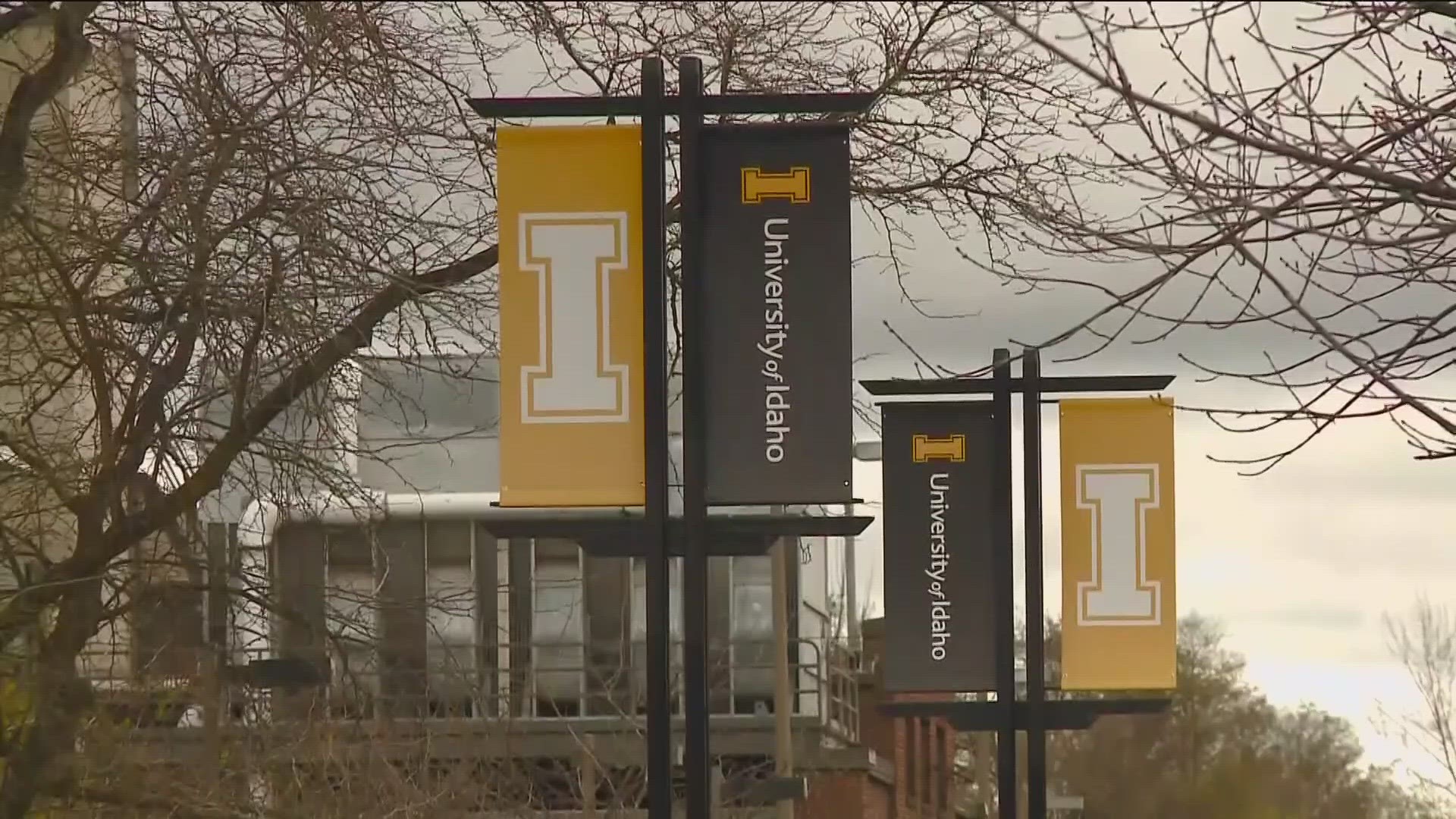BOISE, Idaho — Employee pay raises, increased utility costs, rising health insurance premiums and inflation are the main reasons all four of Idaho's public four-year colleges and universities have asked for tuition-and-fee increases for the 2023-2024 academic year.
The Idaho State Board of Education on Monday approved requests for 5% increases in undergraduate resident tuition and fees for Boise State University, the University of Idaho and Idaho State University, and a 5.6% increase for Lewis-Clark State College. It's the first increase approved since the spring of 2019.
The increases for 2023-2024 compared to the recently completed 2022-2023 school year range from $392 per year at LCSC to $420 per year at the University of Idaho. Here's what they mean in terms of what one year of tuition and fees will cost in 2023-2024 for full-time undergraduate students who are Idaho residents:
- Boise State University: $8,782 (was $8,364 for 2022-23)
- University of Idaho: $8,816 (was $8,396 for 2022-23)
- Idaho State University: $8,356 (was $7,958 for 2022-23)
- Lewis-Clark State: $7,388 (was $7,296 for 2022-23)
"Idaho still has one of the least expensive average resident tuition rates in the entire nation," State Board President Dr. Linda Clark said. "I commend our institutions for how they have managed their budgets without raising tuition these past few years. Our presidents brought conservative tuition and fee requests to us for consideration. With high inflationary and other increased costs, our Board believes the requests were reasonable and warranted."
During the State Board of Education meeting Monday morning, administrators with Boise State and ISU indicated they would have needed to ask for even larger increases to close funding gaps they say were created by the Idaho Legislature's appropriation for the upcoming year, but still, they say, asking to increase tuition at all wasn't an easy decision.
"We have a real commitment to trying to keep the costs low for our students so that we make higher education truly accessible, because it's so important to all of us that we improve the go-on rate in the state of Idaho and that we open our doors broadly and widely," Boise State President Dr. Marlene Tromp said.
ISU President Kevin Satterlee said to stay at break-even, the university would need to raise tuition by more than 8%. He said he was "literally losing sleep over what to do with this request."
"We all know it impacts our students, but it also impacts our students when we don't have the resources to be able to get them the education that they need," Satterlee added.
LCSC VP for Finance and Administration Dr. Julie Crea called the college's request for a 5.6% increase "a meat-and-potatoes, bread-and-butter, bare-bone request," with most of the additional revenue going to pay increases, health insurance and other benefits for college employees, as well as an adjustment for inflation with respect to utilities, fuel and contracts.
Moving forward, LCSC President Dr. Cynthia Pemberton said, "resizing" has put the college's finances in a "relatively stable position."
University of Idaho President Scott Green said he anticipates the U of I will run a surplus this year if the markets hold.
"We can be patient and be more measured in our increases going forward, if we have to increase at all," Green said. "We obviously very much cherish our accessibility in this state, and we want to make sure we preserve that as best we can."
The SBOE on Monday also approved new salaries, reflecting merit-pay increases, for the presidents of the four institutions:
- $465,235 for U of I President Scott Green
- $459,666 for Boise State President Marlene Tromp
- $441,000 for ISU President Kevin Satterlee
- $288,750 for LCSC President Cynthia Pemberton
Those new salaries take effect on June 11.
Video of Monday's SBOE meeting, with the complete presentations from each college and university, is available in this link and below:

